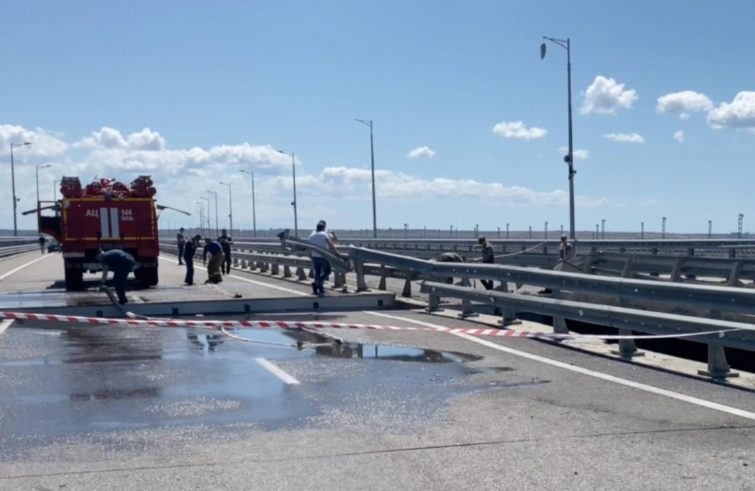
“From a diplomatic point of view, every tile, no matter how small, that can help to complete this difficult mosaic of peace is a step forward.” Ambassador Pasquale Ferrara, currently Director General for Political and Security Affairs at the Ministry of Foreign Affairs and International Cooperation, is closely following Cardinal Matteo Zuppi’s “mission”, which took him to Washington yesterday to meet US President Joe Biden. The meeting with President Biden in Washington is the third leg of Cardinal Zuppi’s mission of peace for Ukraine, entrusted to him by Pope Francis. It follows the meetings in Kyiv, with President Zelensky, and in Moscow, with Patriarch Kirill and with Maria Lvova-Belova, who is responsible, among other things, for Ukrainian children in Russia.
Ambassador, what is your diplomatic view on this mission?
I think that the overall objective of Card. Zuppi’s mission has been clearly outlined by the Apostolic Nuncio in Washington, who spoke of a mission of listening and being listened to. This initiative is in line with other diplomatic attempts underway, ranging from President Zelensky’s peace proposal, to China’s twelve-point peace plan, to Brazil’s proposals, to those of Indonesia and a group of African countries. Unfortunately, however, there is still no real plan for peace, only a number of broadly shared principles which will have to be formulated in a more concrete way with a view to a future framework for negotiations. It should also be said that the Holy See’s approach is not aimed at mediation in the technical sense, but at facilitating efforts in the field of humanitarian law, which, as we know, includes the issue of the safe return and reunification with their families of Ukrainian children deported to Russia.
What might be the ‘strength’ of this initiative of the Holy See?
The Holy See is more than just an actor on the international stage. It has a capacity that other actors lack, namely the capacity to mobilise a non-governmental sector of civil society and religious organisations that can make a very important contribution, especially in the field of human rights and respect for humanitarian values, even during a conflict.
Kiev, Moscow and now Washington. So far, Card. Zuppi has only had bilateral meetings. How will it be possible to move on to the next stage? In other words, to bring all the different players to the negotiating table?
These dialogues are only ostensibly and formally bilateral. In reality, they form part of a more articulate attempt to pursue a multilateral framework. Sooner or later, all wars must end. And all wars, on the basis of historical experience, tend to end with a diplomatic settlement, usually with an international conference at which all the key issues are discussed. The 1975 Helsinki Conference on Peace and Security in Europe could serve as a model for the post-conflict phase. But there are thorny, pressing issues to be resolved, starting with the grave violation of Ukraine’s territorial integrity, independence and sovereignty, and the question of war crimes. A ceasefire is often discussed, but it must not mean simply putting the current phase of the conflict on hold without also providing for the full and gradual withdrawal of Russian forces from Ukrainian territory. All these issues will necessarily have to be addressed in a multilateral context in order to create the conditions for a just, lasting and sustainable peace. However, the conditions for this are not yet in place. In this context, the Holy See’s efforts are fundamental and by no means secondary to the central issue of peace.
The Vatican mission aims to support humanitarian initiatives. More specifically, in this case the efforts are focused on the exchange of children who have been deported to Russia. Why involve Washington?
I don’t think it’s a question of involving the United States. Rather, the mission to Washington is a response to the extremely important task of informing the United States, one of the most important actors on the world stage and one that could play a key role in a future peace process, about the Holy See’s ongoing efforts. The issue of the return of the children is being dealt with through official channels, involving in particular the Ukrainian and Russian governments, as well as non-governmental religious organisations, both Catholic and Orthodox. I assume that Cardinal Zuppi wanted to gain a clearer insight into Washington’s assessment of the future prospects of this tragic conflict, which has now dragged on for more than 500 days, with tens of thousands of casualties on both sides. It is in the primary interest of the Holy See to maintain constant contact with a country that has played and will continue to play a fundamental role after the end of hostilities.
Zuppi’s mission to Washington came at a time of heightened tension, marked by Russia’s withdrawal from the grain deal and the attacks in Crimea. In the light of this situation, what does Pope Francis’ peace plan propose?
Pope Francis wants the war to end, and soon. His short-term goal is to help create the minimum conditions for this to happen. But there can be no peace without justice, and justice is fundamental because it involves the legitimate self-defence of a country that has been invaded. This is an important point. Of course, I don’t think the Holy See intends to limit its action to the issue of the forcibly deported children. The Holy See has an important role to play if not now, then in the future, especially within the multilateral institutions, starting with the United Nations in New York, in order to encourage and support the initiatives aimed at resolving this conflict, which will have to be discussed sooner or later.











